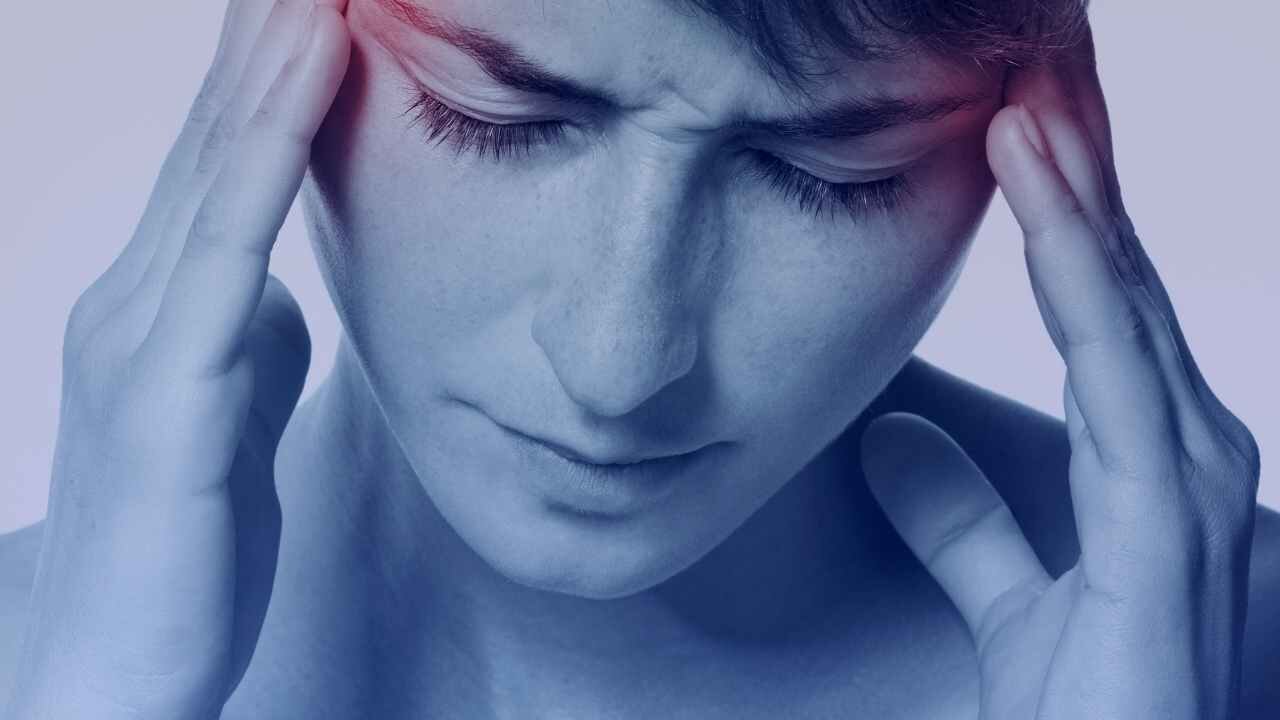There is a lot more to migraines than just a terrible headache. Regular migraine sufferers frequently say that their mental health suffers as a result of their condition. There are several health issues that are caused by migraines and many more that are associated with them. Individuals may ignore symptoms if they are not properly informed on the consequences of migraines can bring, which delays the possibility of a diagnosis.
A migraine is characterized by a persistent, throbbing headache on one side of the brain. Usually, the pain is categorized as moderate to severe. Moreover, it may cause symptoms including nausea, sickness, and heightened sensitivity to light or sound. One in five women and one in fifteen males are affected. Also, since you are more likely to experience migraines if a close relative already suffers from the ailment, it has been hypothesized that migraines may be inherited. Avoiding a certain trigger, such as stress or a particular meal, may help lower your risk of developing migraines if you believe it to be the cause of your headaches. Maintaining a generally healthy lifestyle, such as regular exercise, sleep, and meals, as well as making sure you stay hydrated and limiting your intake of alcohol and caffeine, may also be helpful. If you experience frequent, severe migraines or if you’ve tried to avoid potential triggers but are still having symptoms, your doctor may recommend medication to help you avoid further attacks. Topiramate, an anti-seizure drug, and propranolol, a drug often used to treat high blood pressure, are two medications used to prevent migraines. The first several weeks may be necessary for your migraine symptoms to start getting better.
There are various migraine subtypes, including:
When there are particular precursor symptoms, such as seeing light flashes, a migraine is said to have an aura.
migraine without aura refers to headaches that strike suddenly.
When a migraine aura or other migraine symptoms are felt, but the real headache pain does not materialize, this is known as a silent migraine.
Here are five affects that migraines may have on your mental health if you experience them and wish to learn more:
1. Depression
You are twice as likely to experience depression if you only occasionally get migraines as opposed to never getting them. Similar to chronic migraines, which happen multiple times per month, your risk increases by twofold. Because patients with migraines frequently experience depression due to the excruciating pain, there is a strong correlation between depression and migraines.
On the other hand, depressive symptoms may start out first and then be quickly followed by excruciating migraines. Both migraineurs and individuals with depression are three times more likely to experience a migraine than the opposite is true. Those who have it report feeling down, despondent, worn out, and uninterested in activities they once found enjoyable.
2. Anxiety
Between 50% to 60% of migraine patients will also experience anxiety. In actuality, anxiety disorders are more prevalent in chronic migraineurs than depression. Similar to sadness, anxiety or migraines may start before other symptoms. Worry about the attack itself, such as how long it will persist and when the medication will start to act, is a common source of anxiety during a migraine episode.
Even if the patient is not currently having a migraine, they may start to worry about when they will. It’s interesting to note that patients who experience life anxiety are more susceptible to migraines, and vice versa. If the patient experiences both depression and anxiety, they might need to take different medications to address each ailment separately.
3. Increased Fatigue
Numerous sufferers of persistent migraines also report feeling worn out. This level of exhaustion can persist for a very long period and is sometimes resistant to treatment by getting enough sleep. Your mental health may then suffer as a result of fatigue as you begin to feel lethargic and uninterested. This may worsen the signs of pre-existing depression or contribute to its development. As a further consequence of weariness, impaired vision and sluggish coordination are both possible. A patient is more likely to take time off work if they are fatigued till they are healthy enough to go back to work. They might experience more rebirth and less fatigue after attending wellness vacations or visiting a specialized aesthetic clinic as Manchester provides.
4. Changes in Your Mood
For many people, migraines frequently progress in stages, the first of which is a shift in your mood. Patients may sense a shift in mood prior to an attack, similar to how anxiety might make patients worry about having an attack.
Before experiencing a migraine episode, changes in mood, behavior, and appetite might happen hours or even days in advance. After that, patients will go through the true headache stage, where they will feel a pulsing or throbbing pain on one side of the head. The next phase is resolution. Once more, at this time, patients are more prone to go through mood shifts that can last a few days.
5. Poor Memory
Acute confusional migraines (ACMs) are a rare variety of migraine that mostly affect adolescents and teenagers. Around 10% of children and teenagers have one of the many diseases that are still going untreated. One of the main signs of an acute confusional migraine attack is memory loss. Disorientation, impaired vision, and difficulty speaking are some more symptoms. Although this memory loss is only transient, there is evidence that long-term headaches may have a negative impact on memory. However, research on this subject is still very much ongoing.




